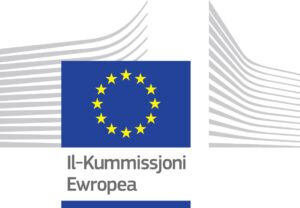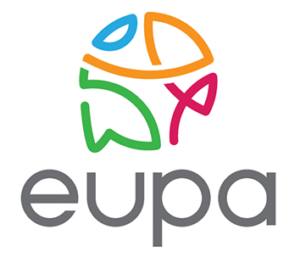

Project Code 2021-2-MT01-KA220-YOU-000050879
Erasmus+ Call for proposals KA220-YOU – Cooperation partnerships in youth
Project website: https://erasmus1230.wixsite.com/eco-toolbox
Partners
GENISTA RESEARCH FOUNDATION – Malta
INSTITOYTO KOINONIKIS KAINOTOMIAS KAI SYNOXIS – Greece
European Center for Research and Regional Development – Latvia
Zavod Boter Slovenia Jugovzhodna – Slovenija
Ecocenter Alapítvány – Hungary
Project budget: EUR 134,875.00
Project duration: 01/03/2022 – 29/02/2024 (24 months)
Summary of the project: Even in Malta, a small country in the heart of Europe, climate change is evident. The annual mean temperatures in the capital are now usually above the 30 years average of the last century. Human activities in Malta related to transportation, energy combustion in buildings, industrial emissions and agriculture, are still the main causes of Greenhouse gas emissions affecting the environment of the country. Malta is deploying mitigation policies to satisfy the Doha amendment of the Kyoto protocol and reduce greenhouse emissions to an average of 20% below the 1990 level. According to the “European Parliament-Think Tank” ‘s latest state of play (Oct.2021), the EU’s binding climate and energy legislation for 2030 requires Member States to adopt national energy and climate plans (NECPs) covering the period 2021 to 2030. In October 2020, the European Commission published an assessment for each NECP. Malta’s final NECP is from December 2019. A high proportion of Maltese people (75 %) expect national governments to tackle climate change. Malta, which generates less than 0.1 % of the EU-27’s total greenhouse gas (GHG) emissions, has reduced its emissions at a faster pace than the EU average since 2012. However, according to Malta’s NECP, the country’s geography and demographics, combined with rising gross domestic product (GDP), will make it difficult to continue this trend. It takes actions in the field of education, training, and public awareness, especially for young people, on environmental issues, with biodiversity, waste, and energy-saving being the most recurrent themes linked to climate change. International frameworks on climate change and sustainable development policies, support youth education and participation, as major stakeholders, in responding to climate change (UNCED, Agenda 21). Youth education promotes active citizenship and the empowerment of future generations to engage in environmental governance, including climate change governance, calls on governments to implement educational and training programs on climate change to educate, empower, and engage all stakeholders.
The Green Deal Malta Platform introduced on Sept. 2021 the Malta National Youth Council (KNŻ) which fully believes that youths are not just the leaders of tomorrow, but also of today. Youths in Malta too have rallied in calling for more climate action, more ambitious emission reduction targets and greater prioritization of measures that can help our society adapt to the changing climate. This effort has been spearheaded by civil society, of which KNŻ has proudly contributed. KNŻ has helped to organize climate marches, participated in numerous debates on the issue, submitted feedback on the “Malta Low Carbon Development Strategy,” and played a key role in lobbying for the declaration of a climate emergency bill, which was passed with unanimous support from all sides of the houses of parliament. The bill helped raise climate change up the political agenda, and though it did not lead to overnight reductions in emissions, it has increased awareness. However, many steps need to be done since presently the actual implementation of educational policies at regional or national/local levels is typically lacking or insufficient mainly in innovative educational tools and methodologies that could prove effective in young people’s capacities to influence and participate directly in efforts to learn about, prevent, prepare for, cope with and adapt to climate change and extreme events. Small-scale needs assessment in the form of a survey was carried out to a number of youths and youth workers of all partner countries, to investigate the needs of the target groups with regards to climate change and educational tools with results revealing their interest in game based learning (GBL).
Eco-toolbox is a 24month project dealing with the lack of youth capacity on climate change and environmental awareness through GBL offered by trained youth workers through GBL processes.
Results:
- The Eco-Toolbox Methodological e-Guide for young people on Innovative Climate Change Adaptation Techniques providing information on how to adjust to the modern climate change adaptation mind-set and how to use it to implement innovative methodological and strategical eco-friendly thinking during youth work (PR1), the Trainers’ e-Seminar Curriculum on Environmental Issues (PR2), an “Eco-Friendly” Educational Game (PR3) and a “How to save Planet Earth” Animation Video Series (PR4), all interconnected.
- 5 Multiplier Events (one for each partner) to promote the project, its project results and outcomes among youth workers and youth learners and other stakeholders (organizations involved in climate change and sustainable development, youth organizations, policymakers and reformers, youth workers/trainers/educators working with young people, etc.)
Other expected results of the project:
• Each partner will have the opportunity to learn about GBL as practiced in each partners’ country, exchange good practices and experiences, develop common recommendations and guidelines and improve their learning of environmental degradation & climate change issues through fun, motivating and stimulating GBL environment.
• Formation of friendly relations between youths from different countries, exchange of experiences and challenges they face regarding the impact of climate change in the local environment and in their country in general, and mutual support.
• Collaboration support between key people (trainers, specialists, experts, representatives of local authorities) and youth workers from each partner.
• Social integration of youths from different countries, cultures, and way of life
• EU international mobility of project participants (field professionals, representatives of target groups)
• Informational material production and publications translated into partners’ languages
• Social and media campaigns implementation
• Project participants’ social competencies boost through active transnational communication and participation in project activities.
Additionally, the project foresees a set of project management, dissemination, monitoring and evaluation, and coordination results. Specifically:
• Project Management Plan (P1): including the agreements, administrative work, financial and budget control, time management, roles and responsibilities allocation, templates for reporting, communication means, reporting (interim and final reports) processes, where the coordinator will be responsible with the support from all the partners.
• Project Evaluation & Quality Assurance Plan (P4): It will be arranged at the beginning of the project, where the quality and risk management plan and quality assurance procedures will be described in detail, in order to guarantee the quality of the project outputs.
• Dissemination Plan (P2): A dissemination plan will be produced to describe the dissemination activities targeting relevant to the project stakeholders and the general public. All partners will contribute to the dissemination activities according to their areas of expertise.
• Sustainability & Exploitation Plan (P3 & P5): An exploitation plan will be prepared so that the partners will utilize the produced materials to the maximum, within the partnership and with other institutions/organizations, during and after the project is completed.
Once the project is completed the partners will disseminate its results and transfer the developed practices & educational products in other contexts and educational fields. The PRs will be used in partners’ activities with other young people, which will be open-source and available for free download. In the long term, this will allow to further systematize the PRs at policy and operational level to make available the developed methodologies and tools to a greater number of young people.
